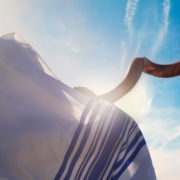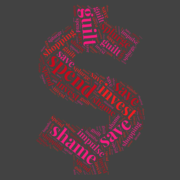Yom Kippur: Personal and Financial Purification
As originally appeared in The Jerusalem Post on October 1, 2022.
“Yom Kippur, the Day of Atonement, is the holy of holies of Jewish time. It is that rarest of phenomena, a Jewish festival without food. Instead, it is a day of fasting and prayer, introspection and self-judgment when, collectively and repeatedly, we confess our sins and pray to be written into God’s Book of Life.” Rabbi Lord Jonathan Sacks
Yom Kippur is just a few days away and many are preoccupied with seeking forgiveness for this past year’s sins as well as making resolutions to improve in the upcoming year. One could ask: how is it that, each year, we keep coming back and asking forgiveness for the same sins over and over again? It’s as if we know that we aren’t going to improve – and yet we go through the same process and are forgiven.
The end of the last Mishna in the Tractate of Yoma quotes Rabbi Akiva, who said, “Fortunate are you, Israel, in front of whom do you get purified, and who purifies you? Your Father in heaven, as it is written, ‘and I will sprinkle pure water upon you and purify you’ and ‘God, the mikveh of Israel’ – just as a mikveh purifies the impure, so too God purifies Israel.” (Mishna Yoma 8:9)
I can understand how a mikveh can purify those who immerse themselves fully, but can a few sprinkles of holy water have the same effect? I think that the sprinkling signifies a process. It takes a lot of drops of water to create a whole pool. We aren’t expected to change our lifestyles overnight and become perfect people. It is a long process – one change, however small, followed by the next. It’s the process to get back on track and stick to these changes that grants us “purification.”
A better approach to a New Year’s resolution
We all know how successful New Year’s resolutions are. Most people make big resolutions and fall off the wagon within a few days. The better approach is to set a few small goals and keep to them. If we do that, we get a few “wins” and that can snowball into more and more, and then, over time, we see just how far we’ve come.
Sound familiar? It’s the same recipe I have written for getting out of debt. I think the most successful approach is not to pay off the biggest debt first, and to instead start with the smallest debt. When you knock that out, it’s a huge victory and that will enable more debts to be paid off.
The key to self-improvement is to start with small, simple changes, and Yom Kippur is very much a day of simplicity. No one trying to impress his friend, no fancy clothes, just a focus on repenting for past sins and trying to create a game plan to prevent future ones. In fact, there is a custom to wear plain white clothes.
Explaining this custom, Rabbi Berel Wein wrote, “The white garments are also a reminder of the costume of the High Priest, worn on Yom Kippur during most of the Yom Kippur service in the Holy Temple in Jerusalem. The main service was conducted then and there with the High Priest wearing the four white garments – shirt, pants, belt and hat – without the four gold garments – the long coat, the breastplate, the head plate and the apron – that he ordinarily wore when performing his duties. The gold garments are not worn on this day of asking forgiveness, because they represent hubris, human majesty and are a potential reminder of the sin of the Golden Calf. Yom Kippur is a day of humility and a low and private profile. Fancy garments, especially gold garments, are really out of place and contrary to the prevailing spirit of this holy day.”
Applying Yom Kippur lessons to financial life
I think that we can take this lesson and apply it to our financial life as well. Yom Kippur is not just a day focused on the spiritual, but as illustrated in the High Priest’s prayer upon finishing the service, physical needs as well. Reviewing the past isn’t just for spiritual improvement. Reviewing your investment “sins” of the last year is a great way to get yourself back on the path to financial stability.
It’s important when trying to get back on the path to know where that path ultimately leads. You need to define your goals. Whether you invest to fund your retirement, to pay for children’s weddings, to leave an inheritance for the next generation, or a combination of these, invest with those goals in mind. If you need your money in a year or two to buy an apartment or to pay for a wedding, you may have to accept getting a small return on your investment as opposed to trying to beat the stock market. If you understand your goals and you invest to meet them, your chances of success will be much greater.
During the 10 days of repentance, a central focus of the liturgy is when we say, “renew our days as of old,” which means it is time to start with a clean slate. Leave all your financial baggage behind and focus on making smart money decisions.
May we all merit to be inscribed in the book of life.
Gmar Chatima Tova.
The information contained in this article reflects the opinion of the author and not necessarily the opinion of Portfolio Resources Group, Inc. or its affiliates.
Aaron Katsman is the author of Retirement GPS: How to Navigate Your Way to A Secure Financial Future with Global Investing (McGraw-Hill), and is a licensed financial professional both in the United States and Israel, and helps people who open investment accounts in the United States. Securities are offered through Portfolio Resources Group, Inc. (www.prginc.net). Member FINRA, SIPC, MSRB, SIFMA, FSI. For more information, call (02) 624-0995 visit www.aaronkatsman.com or email aaron@lighthousecapital.co.il.








